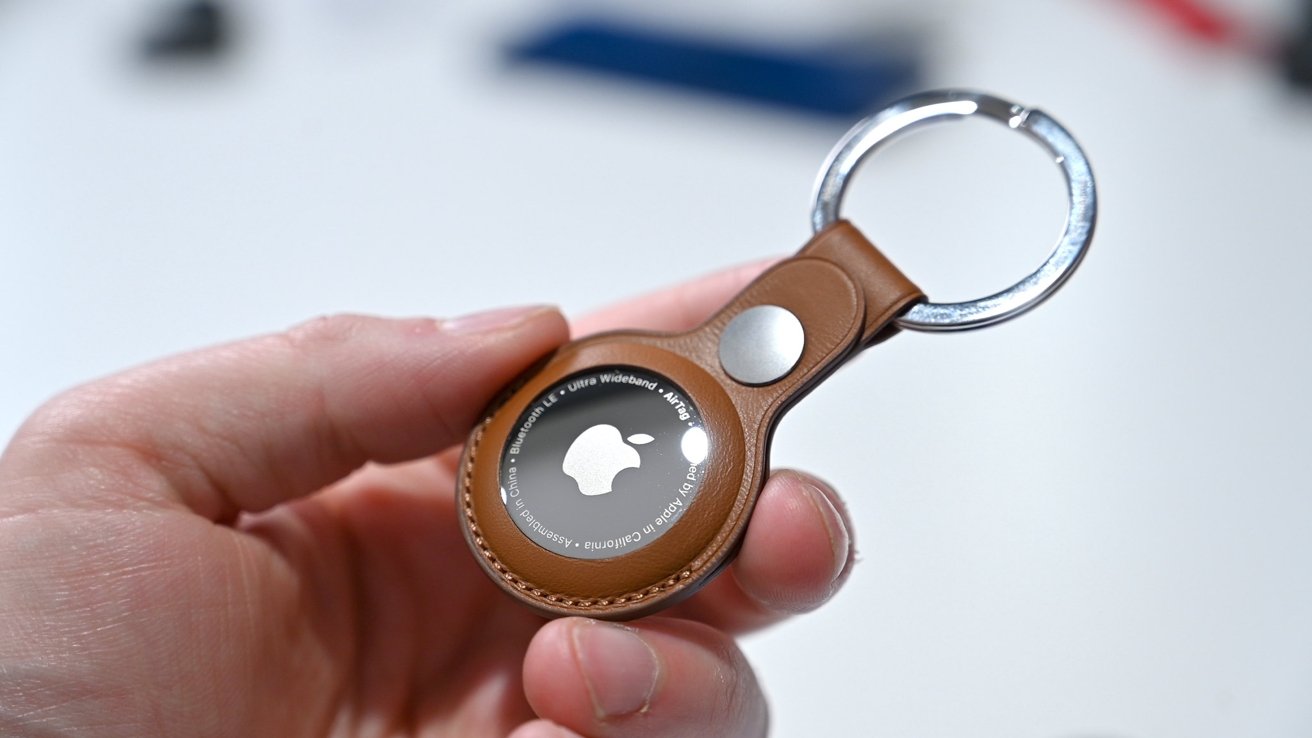Apple AirTags and other tracking devices like Tile are being used for stalking and other malicious purposes, and the solution will require a joint effort between companies, experts say.
While reports of AirTag stalking have been making headlines in recent months, reports have suggested that the Apple tracker's security features actually makes it a poorer choice for malicious intent than similar devices.
Privacy experts and researchers say that mitigating the stalking and misuse problem with tracking devices will require Apple to work with Google, Tile, Samsung, and other manufacturers of rival devices, according to CNET.
"I think that there are going to be limitations as long as the solutions remain with individual companies," said Erica Olsen, the director of the Safety Net Project at the National Network to End Domestic Violence.
Part of the solution could include different companies sharing data about how tracking devices are being misused, which could help address the problem across different platforms iOS and Android.
For example, Android users who want to protect against AirTag stalking can use an Apple app to scan for trackers. However, that app has limitations, such as the lack of a background scanning ability. To find an unwanted AirTag, Android users currently have to open the app and manually perform a scan.
Some third parties may be working on a solution as well. Alexander Heinrich, a researcher at the Technical University of Darmstadt in Germany, has developed AirGuard, which includes background AirTag scanning.
"On day one, I felt like OK, I have to do something for Android because also people were calling that out immediately," Heinrich told CNET. "Because they saw, OK, on iOS they have integrated it, but there's nothing for Android."
While social media tends to blame the technology at its core, people are being alerted to planted AirTags by Apple's anti-stalking technologies that other devices or operating systems don't have.
Coming up with stronger safeguards may require additional study. Jen King, a privacy and data policy fellow at the Stanford Institute for Human-Centered Artificial Intelligence, said that current information about AirTag stalking is "all anecdotal."
Heinrich, the developer of AirGuard, is working to solve the lack of actual data.. The researcher and his colleagues are currently carrying out an opt-in study using AirGuard to determine exactly how AirTags are being exploited for malicious purposes.
Although Apple has promised a slate of changes to address misuse, and companies like Tile have planned anti-stalking features, fixing the problem may require continued vigilance and effort by manufacturers.
"People are unfortunately very clever with misusing products, and they'll continue to find ways," Olsen told CNET. "So I think it's going to be a constant kind of battle to continually evolve the product."
 Mike Peterson
Mike Peterson







-m.jpg)






 Christine McKee
Christine McKee
 Marko Zivkovic
Marko Zivkovic
 Mike Wuerthele
Mike Wuerthele

 Amber Neely
Amber Neely
 Sponsored Content
Sponsored Content
 Wesley Hilliard
Wesley Hilliard










4 Comments
Working together would be nice, but how likely is that?
This form of device requires piggybacking on a global network of other people’s smartphones.
What ‘say’ do owners have in their smartphone’s role in this solution (or problem)? I may want to use this to find my keys or luggage, but why should I and my smartphone be helpless to prevent a thief or pedophile stalk someone?
I’d like to be able to give my permission to ONLY allow registered tracking devices to leverage my smartphone’s Internet connectivity to report back location details. Others may want the choice to use Bluetooth for their needs, but not participate in this service at all.
By registered, I mean the device is activated (and periodically renewed) in a manner that ensures the device maker can disclose device ownership details to authorities.
I think makers of smartphones can cook up an anti-stalker detection solution for any Bluetooth device (not just one they also sell) that appears to be repeatedly or constantly lingering, inform you (or your parent/guardian) of them, and let you either add them to an “Allow list”, or help you report them to the device maker, the smartphone maker, and/or local police.
You could also name devices in your Allow list and see details about them, kind of like how my home network detects and informs me if a new device has joined the network (and let’s me name devices and see their connection details). In a “family” of smartphones, certain “heads” could manage this and the choices would apply to the family.
Leave the market. Not worth it.